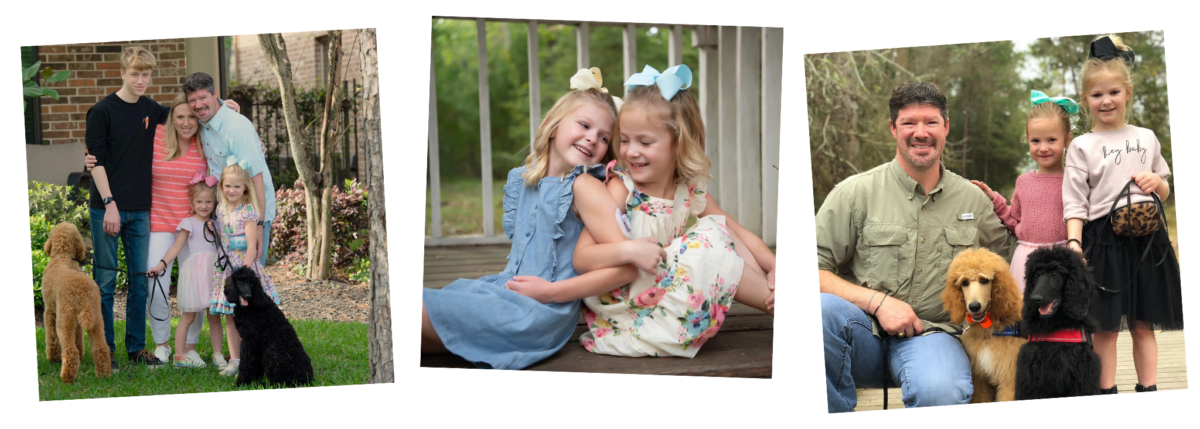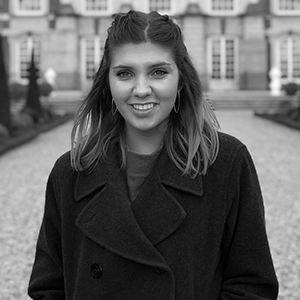Knowledge is Power: Screening for T1D
Individuals can now get screened for type 1 diabetes (T1D) from home. JDRF just announced the T1Detect program – raising awareness and education of a new at-home screening test for T1D antibodies. Everyone, regardless of relation to someone with confirmed T1D, is eligible. If you or someone you love is interested in T1D screening, click here.
A crash course in T1D
Jerry Brzozowski was diagnosed with type 1 diabetes two weeks before he graduated high school in 1996. He was working as a veterinarian when he met his wife, Samantha. Jerry was always vocal about his T1D, but he continued to live his life as normally as he could, so much so to the point that Samantha wasn’t entirely sure how T1D worked. That was until their first daughter, Vivian, was diagnosed at the age of 2.
Samantha explains, “As cool as a cucumber you want to be about going about your day-to-day life, there are a lot of obstacles you secretly overcome. Our daughter being diagnosed was absolutely when I fully learned that this can be a very challenging disease at times. At the same time, I’m grateful for [Jerry’s] outlook, because it was definitely calming for me. When I meet other parents who have newly diagnosed kids, there’s sometimes a sense of fear and panic—I didn’t really have that because Jerry was my good example.”
When Jerry was diagnosed, there wasn’t much research that had been done on the genetics of type 1 and doctors believed his diagnosis was something of a fluke, due to the fact that no one else in his family had T1D. For these reasons, Jerry and Samantha were not on the lookout for signs of T1D but they explain that, now, looking back they can see Vivian had all the symptoms.
“If we look at pictures, she had that classic kind of malnourished type look,” Samantha remembers. “But I was a skinny kid, Jerry was a skinny kid. We really didn’t think much beyond that, but she started guzzling water and soaking through her nighttime diapers a lot. He came home from work on a Saturday afternoon and I told him, “I think you need to check her blood sugars.” And, he knew. We never had to say anything to each other after that. We both knew what it was, and we got in the car and drove to the hospital.”
Screening for future T1D diagnoses
Fortunately, the family caught Vivian’s diagnosis early enough and she was not in diabetic ketoacidosis (DKA). At the hospital, the Brzozowskis were introduced to TrialNet, a genetic testing service that works to identify T1D at its earliest stages and find ways to delay or prevent the disease in individuals at risk. The family learned that it was actually possible to screen for type 1 diabetes prior to onset. That a simple blood test could tell the likelihood of developing T1D by looking at certain antibodies.
At the time of Vivian’s diagnosis, her younger sister, Evelyn, was only 6 months old. The family had to wait another six months, but after Evelyn’s first birthday they went back to the hospital and had her samples drawn.
“It was a no-brainer for us. Both of us coming from more of a scientific background and working with animals, to us, knowledge is power, even when it comes to knowing medical conditions and pending medical conditions. The more proactive that you can be the better. To me, it armed us to be able to research deeper,” Samantha says.
Knowledge is power
After her samples were taken, she tested positive for three out of the four antibodies that indicate whether someone is at risk for T1D. The family was told that the likelihood of Evelyn developing type 1 by the age of five was nearly 100 percent. She has since surpassed that milestone, and still shows no signs of type 1 but continues to be monitored and receive A1C checks with her sister.
The Brzozowskis remain diligent and aware of Evelyn’s chance of developing type 1, but they see this knowledge as powerful, rather than detrimental.
“Knowledge is power,” Jerry reminds us. “The biggest thing is having it on your radar so if those symptoms start popping up, you’ll be ready. It’s just a matter of being more aware and to hopefully prevent hospitalization just by routine checking.”
Epilogue
This interview took place on September 28, 2020. Since that time, Evelyn has officially been diagnosed with type 1 diabetes and has started on insulin. Samantha told Beyond Type 1 “We are even more thankful for the testing, because we were able to catch her SO early on and avoid any trauma from a hospital stay.”





